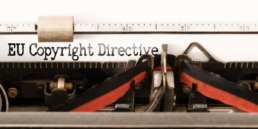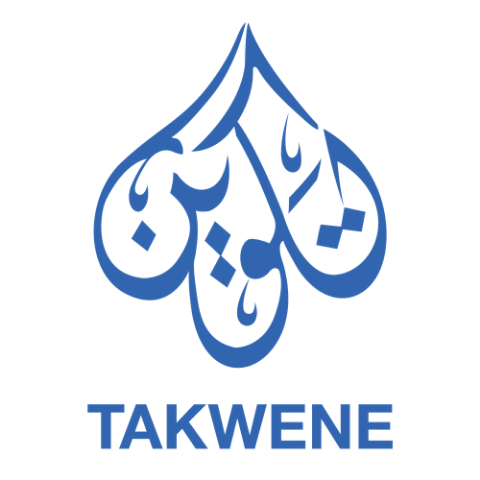Vydia Strikes Agreement with Audible Magic, Partnership Allows Independent Creators to Join World’s Most Extensive B2B Music Catalog
As part of Audible Magic’s ongoing mission to help platforms access music for their users, Audible Magic recently announced its partnership with the global music technology platform, Vydia. The partnership with Vydia allows Audible Magic to expand its catalog of new music to its customers such as social networks, gaming, and fitness platforms.
Vydia brings a library of top talent from independent artists from all over the world, including Five Finger Death Punch, Russ, Akon, and Kanye’s Sunday Service Choir. In addition, the platform offers a white label service, currently utilized by nearly 40 labels all over the world, with a list that continues to expand globally. With a vision to provide the infrastructure and tools to power the business of music, adding Audible Magic to Vydia’s ongoing list of distribution channels will further enable discovery and engagement opportunities for creators while maintaining the correct metadata and licensing.
Audible Magic provides platforms with a fully integrated solution for music management, including licensing, fulfillment, rights administration, and content identification. The company hosts the largest business-to-business rights-managed catalog with over 100 million tracks.
On the partnership, Vydia’s Head of Strategic Partnerships, Jenna Tirico Nilsen says "We're thrilled to be partnering with Audible Magic to help them achieve their aim of providing breakthrough music solutions around the world. We are delighted to be a part of their efforts to develop products that solve the demands of the ever-changing music and entertainment industry."
“We are excited to work with Vydia to provide new opportunities for their artists,” commented Vance Ikezoye, Chief Executive Officer of Audible Magic. “Access to great music is key for our customers as they build compelling user experiences to grow their audiences, whether it is for an exercise class, a social media post, or a gaming experience. We are happy to enable that to happen through our fulfillment and rights management services.”
About Vydia:
Vydia is an end-to-end music technology platform and services company that provides labels with the infrastructure and tools to power their business. With a full suite of services, Vydia offers video and audio supply chain, global distribution, analytics, rights management, payments, detailed revenue reporting, and white label services. Vydia is a partner of leading digital service providers such as Spotify, Apple, TikTok, Vevo, YouTube, and Facebook. Combining innovative technology with industry expertise, Vydia is distribution reimagined.
About Audible Magic:
For more than 20 years, Audible Magic has innovated solutions to identify content, provide fulfillment solutions, manage rights, and monetize media. Audible Magic’s Emmy-winning automatic content recognition (ACR) technology powers billions of monthly transactions. The Silicon Valley pioneer is the trusted intermediary between major platforms and rights holders (including labels, studios, distributors, publishers, and collectives). For more information, visit https://www.audiblemagic.com/.
Audible Magic Sponsors 22nd International Society for Music Information Retrieval (ISMIR) Conference
Los Gatos, Calif. — Nov. 5, 2021 — Audible Magic, the industry leader in automatic content recognition, proudly supports the continued research of music identification by sponsoring the International Society for Music Information Retrieval (ISMIR) Conference. This event is the world’s leading research forum on processing, searching, organizing, and accessing music-related data, and will be held online this year from November 8-12.
The ISMIR Conference provides academic and commercial research teams an opportunity to share the latest advancements in artificial intelligence and neural network solutions to identify music and retrieve related metadata. Recognizing the importance of the ISMIR organization, our research team has often presented at and participated in the conference and values interacting with the members. The ISMIR community stays at the leading edge of development, and Audible Magic is excited to support its efforts at this forum.
“As platforms such as social networks, fitness apps, and gaming platforms push the boundaries of how they use music, our research team continues to expand the capabilities of identification technology to meet their needs,” said Todd McGee, Vice President of Research and Development at Audible Magic. “The ISMIR conference is a great place to exchange ideas and new findings.”
As a leading player in the identification space with over 50 patents, Audible Magic continues to innovate. The company now offers platforms an integrated music management solution that includes media fulfillment, rights administration, and its Emmy award-winning identification services.
About Audible Magic
For more than 20 years, Audible Magic has innovated solutions to identify content, provide fulfillment solutions, manage rights, and monetize media. Audible Magic’s Emmy-winning automatic content recognition (ACR) technology powers billions of monthly transactions. The Silicon Valley pioneer is the trusted intermediary between major platforms and rightsholders (including labels, studios, distributors, publishers, and collectives). The company works with a wide range of platforms and rights holders, including Facebook, Twitch, SoundCloud, Dailymotion, ShareChat, Vimeo, NBC Universal, Universal Music Group, Sony Music Group, Warner Music Group, The Orchard, CDBaby, and DistroKid. For more information, visit https://www.audiblemagic.com/.
Why is Music Such a Challenge for the Fitness App Industry?
The burgeoning Fitness App industry offers incredible workout experiences and a sense of community, but integrating music poses unique technical and licensing challenges.
The health and fitness app industry is growing leaps and bounds, with some predictions putting the market at US$ 18.7 billion by 2030. The growth is driven not only by better real-time data and equipment, but the worldwide pandemic is driving consumers to find a quality workout at home.
Combining high-quality equipment with classes is now a given for companies like Echelon, Hydrow, and CLMBR. These platforms strive to expand their offerings to their fan base with additional classes on and off the equipment - think yoga, strength training, and Pilates.
Instructors with a worldwide reach on these platforms are gaining almost cult followings. Participants accessing either a web streaming or an on-demand class expect an experience that delivers a workout and a sense of community and emotional connection.
Music: Got to have it
The underpinning of the experience is music. It sets the mood, drives the workout, and becomes part of the instructor’s brand. Class reviewers talk equally about the instructor and their choice of music-many reviewing the playlist before choosing a class.
Instructors who understand this build their class around music, whether it is an hour of EDM, 80s greats, or Miley Cyrus. A large catalog of premium music enables continued class creation and engagement. Recognizing this new vertical for music, record labels are partnering with platforms to create remixes and break new artists.
So, accessing music for these platforms is key to their business. The challenge is getting licenses and handling the overhead of administering the licenses.
Licensing: Infrastructure, Infrastructure, and More Infrastructure!
One of the first major hurdles that a platform needs to consider when approaching record labels is proof of technical competency.
Record labels and publishers want assurance that the platform can effectively manage their catalogs while also reporting and paying accurately. Unfortunately, these systems take a lot of licensing expertise, time, and technical resources to build.
The quickest way to move licensing negotiations forward is to partner with an experienced and full-service digital music management vendor before engagement. This service provider will often have the trust of the record labels, access to the masters, sub-licenses, and proven systems for:
- Receiving the music and continuous updates from the labels
- Identifying content to ensure appropriate use
- Linking the sound recording to the musical composition to clear tracks for use, and ensuring proper payment to the publisher(s)
- Reporting and Payments
Very few will provide all those functions, but those who do will make vendor management a lot simpler.
Licenses for Live Streaming and On-Demand
Generally, fitness platforms provide live-streamed classes which may or may not be stored, and they offer on-demand classes. Therefore, in consultation with a music industry expert or lawyer, these platforms will need to obtain appropriate licenses from labels, publishers, and collective management organizations (CMOs) covering the territories they will operate in.
Once they have secured licenses, the platform will have technical and service requirements to ensure only licensed tracks are used and to meet their ongoing licensing obligations as listed below:
- Establish an extensive catalog with matched sound recordings to musical compositions
- Host an approved catalog for use by instructors
- Identify licensed and unlicensed tracks using content identification technology
- Reporting, royalty administration, and payments to rights holders
It is hard enough to administer hundreds of thousands, and in some cases millions of tracks, but the difficulty increases trying to keep up with the continuous changes in catalog ownership. Platforms will need to identify tracks in their current on-demand classes and possibly replace songs when ownership has changed.
One can see that a platform hosting both live-streaming and on-demand classes will have many licensing obligations and will need a partner to help manage the process.
Let Audible Magic Help Manage Music on Your Platform
Audible Magic enables platforms to focus on growing their business by providing world-class proven music management solutions, including:
- Licensing Support - Understand what is cleared and not cleared.
- Fulfillment - Deliver cleared music to your platform now
- Content Identification - ID & track music on your platform
- Royalty Administration and Payment – Royalty reporting and payment to labels, publishers, CMOs and PROs
This blog is issued for informational purposes only and is not intended to be construed or used as general legal advice.
Is The MLC Part of Your Overall Licensing Strategy?
The Mechanical Licensing Collective (MLC) continues to make strides in building its new team and has already begun to receive payments from digital service providers (DSPs). It is great to see the progress in a much-needed organization that will help simplify license administration for rightsholders and DSPs in the United States.
Some may be unclear about the scope of The MLC in the complete context of all of the rights required to distribute music. All entities that use music, whether on streaming sites, social networks, workout platforms, or yes, even permanent download stores, need to understand if The MLC fits into their overall licensing strategy or not.
What is The MLC?
The MLC is an organization born out of the Music Modernization Act of 2018 (MMA). The MMA updated how mechanical rights in musical compositions are licensed for music streaming and download services. Previously, under Section 115 of the U.S. Copyright Act, DSPs downloading or streaming music could use a compulsory license to license the mechanical rights in musical compositions made available through their services. Using this type of license, a music user would be required to license each musical composition on a share-by-share basis and to provide notice reporting and payments to publishers, administrators, and self-administered songwriters, composers, and lyricists. With the massive volume of music these platforms host, the process was challenging to say the least.
Under the MMA, qualifying DSPs in the United States can elect to secure a blanket mechanical license for music for streaming and downloads. The MLC was created to administer this license, and all DSPs which obtain the license send a monthly report and payment to The MLC. The MLC will then disburse payments and reporting to the publishers who have registered on The MLC portal.
The establishment of The MLC will provide greater clarity, licensing certainty, regular reporting, and accountability, all of which will help both the music industry and the platforms.
The MLC is Only Part of the Overall Licensing Solution
The responsibilities of The MLC are laid out in Section 115 of the U.S. Copyright Act and were designed to meet a specific need for administering rights for music audio between publishers and DSPs for downloads and streaming. Considering what The MLC does not cover brings to light what additional steps a digital platform may need to take to be fully licensed.
Record Label Deals:
The MLC administers a blanket license for the mechanical rights in musical compositions required for a service to offer downloads and streaming music. Platforms will still need to license, report, and pay royalties to the record labels for the use of the sound recordings in which these musical compositions are embodied.
Location:
The blanket license administered by The MLC is only available for services made available in the U.S. If a DSP is downloading or streaming music outside the United States, it will need to ensure it has licenses to use the music (both the sound recordings and the musical compositions) in those territories.
Types of Licenses:
The MLC does not administer any other types of licenses or royalties besides the blanket mechanical license for streaming and downloads, and voluntary licenses for the same covered activities. Licenses The MLC does not administer include:
- Public performance licenses
- Synchronization licenses (audio tied to video)
- Sound recording licenses
- Licenses for physical products such as CDs
Licensing Examples – What is covered, what is not:
Let’s look at a couple of fictional music hosting platforms and what they should be thinking about in their licensing strategies. You should consult with an experienced music licensing professional such as a music lawyer or advisor when developing your own licensing strategies.
A medium-sized social network hosting user-generated videos with music in the US and the European Union: The blanket mechanical license from The MLC is designed to address platforms downloading and streaming music. This type of license covers audio, but not audiovisual. Thus, it does not address any music use occurring in a user-generated video. The DSP would have to have direct licenses with the label and the publisher. In addition, the social network is doing business outside the United States and will have to consider how they will license music in multiple territories with both publishers, music rights organizations, and labels.
A medium-sized music streaming service providing interactive music streaming in the United States: Such a service would be eligible for a blanket mechanical license under Section 115 of the U.S. Copyright Act. The MLC would administer the license, and the DSP would report and send royalties to The MLC. The DSP would also need to obtain a license from, and report and pay royalties to the performing rights organizations for the public performance rights in the musical compositions and the record labels for rights in the sound recordings.
Although The MLC’s scope is not all-encompassing, it does cover one of the more common ways recorded music is made available in the United States today and is a step in the right direction in managing the challenges of music license administration. However, for those hoping to host music on their platform, whether for streaming, downloads, fitness apps, gaming, or UGC, companies need to have a complete licensing strategy in place.
The team at Audible Magic will continue to monitor The MLC’s activities and hope to provide more information in the future. In the meantime, check out the resources below.
- Music Modernization Act: https://www.copyright.gov/music-modernization/
- The MLC: https://www.themlc.com/
Audible Magic – Powering Music Online
Leveraging our fully rights-managed catalog of over 100 million tracks, Audible Magic enables platforms to use music via our comprehensive licensing, fulfillment, identification, and rights administration services. Our bespoke scalable solutions enable the use of music in a myriad of use cases including UGC, downloads, streaming, and radio.
This blog is issued for informational purposes only and is not intended to be construed or used as general legal advice. Please contact the author(s) or your Audible Magic Corporation contact if you have questions regarding the currency of this information.
Moj owner ShareChat raises $502m at a valuation of $2.1bn - Music Ally
After signing up 50 million Moj users in its first month, ShareChat raised a $40m funding round; struck some music licensing deals; and tapped Audible Magic for copyright-detection technology, while also fielding rumours that western tech firms Google and Snap wanted to invest in the company.
Read the full article by Music Ally here.
Are EU Member States Making Progress with Article 17?
With the June 7th, 2021 deadline looming for EU Member States to implement the 2019 EU Copyright Directive, many wonder about the timing of individual country transpositions or if there will be delays. The transposition is a process whereby each member state passes legislation to give force to the directive in that country. Although Covid-19 slowed progress, all major EU countries are making headway in their transposition process and are expected to meet the June deadline. The one significant exception is the UK, no longer part of the EU because of Brexit. The government has said it will not be implementing the directive.
To ensure the benefit of the new safe harbor provisions, online content-sharing services that make copyright works, such as music, publicly available in user-generated content will need to understand how and when the law is transposed by each member state. For example, The Netherlands has completed the transposition of the law and has specified that it will go into effect as of June 7, 2021.
We are watching this process carefully since some countries have considered adopting additional or different implementation measures in their transpositions. This could cause service providers to have a requirement to adjust their plans for each country they stream content to.
To learn more about how Article 17 will impact your business, we have included more resources at the end of this summary.
The Netherlands
The Netherlands became the first EU member state to implement the directive on December 28th. Their implementation is mostly a literal transposition of the directive’s provisions, but it also includes a provision that allows the Ministry of Justice to provide further rules on the application of the Article 17 implementation.
Germany
On February 3rd, Germany’s government approved their latest proposal, which was revised in response to feedback from rightsholders and platforms. This draft states that without a corresponding license, platforms must block uploaded copyrighted content; however, short excerpts are presumed permitted by law and may not be blocked by automatic means. The law is scheduled to be debated in the legislature in March.
Austria
The Austrian Ministry of Justice completed the first proposal in December, which borrows elements from previous German proposals, including a direct remuneration right for creators, users’ ability to pre-flag uploads as legitimate, and a threshold that protects minor uses from automated blocking.
France
France passed an authorization law on November 18th, allowing them to implement provisions of the directive by administrative decree. This law specified that the decree implementing Article 17 must be issued 6 months from its passing, which would be April 18th. France's draft law proposes a literal adaptation of Article 17.
Finland
Finland’s proposal relies on the mandatory use of ACR (Automated Content Recognition) technology by platforms. Rightsholders would be required to review infringing uploads before issuing a blocking request, and users would be able to challenge blocks through an independent alternative dispute resolution mechanism.
Denmark
Denmark announced that it would implement Articles 15 and 17 during the parliamentary year and the rest of the directive after the summer. Like the Netherlands, the Denmark transposition is a literal adaptation of the EU Copyright Directive.
The UK Copyright and Creative Economy Centre, based at the University of Glasgow, maintains possibly the most comprehensive and up-to-date resource on national implementation at https://www.create.ac.uk/cdsm-implementation-resource-page/.
Check back for more updates on Article 17 in the coming months. The following resources will help you understand how Article 17 may impact your business.
- What is Article 17?
- Take our A17 assessment to see how Article 17 affects your business.
- Understand how small social networks are impacted by the copyright directive.
This blog is issued for informational purposes only and is not intended to be construed or used as general legal advice. Please contact the author(s) or your Audible Magic Corporation contact if you have questions regarding the currency of this information.
All information is accurate as of March 8, 2021
Sources
https://www.twobirds.com/en/in-focus/copyright-directive
http://www.xinhuanet.com/english/2021-02/04/c_139719400.htm
Takwene Protects Artists’ Rights and Manages Their Catalog with Audible Magic’s RightsRx™ Plus
The award-winning MCN and distributor supports
creators from production to rights protection.
The company's name, Takwene, the Arabic word for “create,” reflects its commitment to providing comprehensive support for artists, often musicians, to produce and succeed online. The Middle Eastern focused multi-channel network (MCN) and distributor launched in 2011 just as the Arab Spring began. Undaunted by the crisis, the Takwene development team focused on building their music distribution platform. The investment paid off as they became the first and only YouTube Certified Partner in the region shortly thereafter.
Continued growth drives the search for Automated Content Recognition Solutions
In 2015, Takwene began registering their audio and video with Audible Magic to protect against unauthorized use on UGC hosting platforms. In 2019, Takwene became the biggest music library in the Middle East, hosting over 100,000 audio and video assets, including Bedouin and Libyan music. The company was also hosting a wide variety of content from creators in the United States and the European Union.
The growing company needed a solution to prevent uploads of unauthorized copyrighted material to their digital service providers (DSP) and to proactively manage ownership conflicts in their international catalog.
Accuracy, scalability, and an international registry were key
Because of the variety of music and the scope of their growing catalog, Takwene needed an automatic content recognition (ACR) vendor that had an extensive international music registry combined with a highly accurate and scalable service to minimize costly human intervention. Although they looked at several ACR providers, Audible Magic’s RightsRx Plus service provided the best match for their requirements.
Prevent the upload of unauthorized copyrighted content and identify catalog conflicts with RightsRx Plus
RightsRx Plus compares a submitted track against an extensive music registry and responds with applicable ownership information to help maintain a catalog free of unauthorized copyrighted content and conflicts. This quick scan helps distributors maintain their status with DSPs and resolve ownership issues with other rightsholders.
“We needed a service that would minimize human intervention, which can be costly. The solution had to be highly accurate and scalable for our expanding business, and accommodate the metadata complications when encoding a diverse catalog merging folkloric Bedouin, Oriental & Nubian Music.” said Ayman Konna, CEO of Takwene. “Audible Magic easily fit the requirements, and the team appreciated the quick integration. We were scanning tracks within a day.”
Challenge: Prevent copyrighted material from being uploaded to DSPs as well as manage conflicts in their catalog. Handle RTL and different metadata encoding.
Solution: Audible Magic’s RightsRx Plus
Key Requirements: Extensive international registry, minimal manual intervention, scalability, accuracy.
Audible Magic Surpasses 100 Million Tracks
Audible Magic the First to Surpass 100 Million Music Tracks
Comprehensive rights-managed music catalog supports streaming, download, fitness, UGC, and other branded services
Los Gatos, Calif. – Feb. 23, 2021 – Audible Magic announced their rights-managed catalog has surpassed 100 million tracks, a first in the space. This milestone gives Audible Magic the largest business-to-business rights-managed catalog available.
The impressive catalog, which contains tracks from over 400,000 labels, is part of the long-established MediaNet content fulfillment and rights administration business purchased by Audible Magic in January 2021. Audible Magic is now the leading provider of content identification, licensing, media fulfillment, and rights administration services to digital music and social media platforms.
The catalog is a result of close relationships with record labels and publishers built over 20+ years of successfully launching music services around the world. It also required the development of a sophisticated rights management platform to take account of the constant changes in rights ownership, and the accelerating numbers of new tracks being released. In 2020 alone, Audible Magic saw a 67% increase in new releases added to their catalog, ingesting, on average, 12,000 new albums every day. This is a massive undertaking and is unmatched in the industry.
Coupled with a 100M tracks catalog, digital platforms can access a variety of Audible Magic’s turnkey music licensing solutions for a variety of services including fitness applications, short-form video, streaming, and downloads. Additionally, Audible Magic’s flexible solutions enable platforms to leverage their own licenses as well as Audible Magic’s pass-through licenses when applicable.
“We are excited to offer an exhaustive music catalog that provides tracks from major and indie labels across an array of territories throughout the globe,” said Vance Ikezoye, chief executive officer of Audible Magic. “Coupled with our services, our customers can focus on creating incredible user experiences, while we take care of the arduous task of rights administration and royalty payments.”
About Audible Magic
For more than 20 years, Audible Magic has innovated solutions to identify content, provide fulfillment solutions, manage rights, and monetize media. Audible Magic’s Emmy-winning automatic content recognition (ACR) technology powers billions of monthly transactions. The Silicon Valley pioneer is the trusted intermediary between major platforms and rightsholders (including labels, studios, distributors, publishers, and collectives). The company works with a wide range of platforms and rights holders, including Facebook, Twitch, SoundCloud, Dailymotion, ShareChat, Vimeo, NBC Universal, Universal Music Group, Sony Music Group, Warner Music Group, The Orchard, CDBaby, and DistroKid. For more information, visit https://www.audiblemagic.com/.
Audible Magic Acquires SOCAN's MediaNet - Hypebot
Canadian PRO SOCAN has sold its global content fulfillment and rights administration service MediaNet to Audible Magic.
Read the full article by Hypebot here.
Audible Magic acquires rights administration business MediaNet from SOCAN - RightsTech
SOCAN and Audible Magic have also announced they have entered into a strategic partnership with the goal to use Audible Magic technology and services to help SOCAN improve operational accuracy and reporting to publishers and songwriters. Financial terms of the deal were not disclosed.
Read the full article by RightsTech here.









